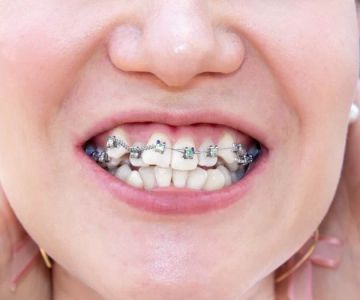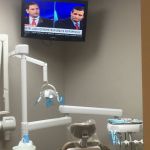- 1-Common-Causes-of-Bad-Breath-in-Children
- 2-Oral-Hygiene-and-Its-Impact-on-Children’s-Breath
- 3-Role-of-Diet-and-Hydration-in-Halitosis
- 4-Medical-Conditions-That-May-Cause-Bad-Breath
- 5-Psychological-and-Behavioral-Factors-Affecting-Breath
- 6-Professional-Tips-to-Manage-and-Prevent-Bad-Breath
Common Causes of Bad Breath in Children
Bad breath, or halitosis, in children is often caused by a variety of factors, ranging from poor oral hygiene to underlying health issues. The most frequent cause is the buildup of bacteria in the mouth, especially on the tongue, gums, and teeth. These bacteria produce sulfur compounds that emit unpleasant odors.
Other common contributors include food particles trapped in the mouth, dry mouth due to mouth breathing or dehydration, and poor dental care habits. Identifying the root cause is essential to effectively address and eliminate bad breath in children.
Oral Hygiene and Its Impact on Children’s Breath
Maintaining good oral hygiene is a cornerstone in preventing bad breath in children. Inadequate brushing and flossing allow plaque buildup, cavities, and gum disease, all of which can contribute to halitosis. Children might resist brushing due to discomfort or lack of motivation, making parental supervision crucial.
Regular dental check-ups are important to detect early signs of tooth decay or infections that may cause foul breath. Professional cleaning removes plaque and tartar that home care might miss, significantly improving breath quality.
Role of Diet and Hydration in Halitosis
A child’s diet plays a significant role in the freshness of their breath. Foods with strong odors such as garlic, onions, and certain spices can temporarily cause bad breath. More importantly, sugary snacks and drinks promote bacterial growth and tooth decay, worsening halitosis over time.
Proper hydration is equally important. Saliva helps wash away food particles and neutralize acids produced by bacteria. Children who do not drink enough water or who breathe through their mouths are prone to dry mouth, which exacerbates bad breath.
Medical Conditions That May Cause Bad Breath
Sometimes bad breath in children is a symptom of underlying medical conditions. Common causes include sinus infections, tonsillitis, respiratory tract infections, and gastrointestinal issues like acid reflux. These conditions create an environment conducive to odor-causing bacteria.
In rare cases, metabolic disorders or diabetes may manifest with persistent halitosis. Consulting healthcare providers for a thorough evaluation is recommended when bad breath does not improve with improved oral care.
Psychological and Behavioral Factors Affecting Breath
Psychological factors such as anxiety or stress can lead children to develop habits like mouth breathing or neglecting oral care, indirectly causing bad breath. Behavioral issues like thumb sucking or prolonged use of pacifiers may also affect oral health and breath odor.
Parents should observe their child’s habits and encourage positive behaviors that promote oral health. Engaging children with fun brushing routines and rewards can improve compliance and breath freshness.
Professional Tips to Manage and Prevent Bad Breath
Experts at Dentistry Toothtruth recommend a multi-faceted approach to tackle bad breath in children. This includes consistent twice-daily brushing with fluoride toothpaste, flossing, tongue cleaning, and regular dental visits.
Dietary adjustments to reduce sugary foods and increase water intake support oral health. For persistent bad breath, medical evaluation is essential to rule out infections or systemic conditions.
Using mouth rinses specifically formulated for children, when appropriate, can also help reduce bacteria. Most importantly, fostering a positive and educational environment around oral hygiene empowers children to take charge of their dental health and breath freshness.







 Eagan Dental Care4.0 (197 review)
Eagan Dental Care4.0 (197 review) Dr. Dental: Dentistry & Braces4.0 (459 review)
Dr. Dental: Dentistry & Braces4.0 (459 review) Chesheim Dental Associates4.0 (103 review)
Chesheim Dental Associates4.0 (103 review) Growing Smiles Pediatric Dentistry - Garner Station5.0 (15 review)
Growing Smiles Pediatric Dentistry - Garner Station5.0 (15 review) All Seacoast Dental and Associates3.0 (38 review)
All Seacoast Dental and Associates3.0 (38 review) DentFirst Dental Care McDonough4.0 (534 review)
DentFirst Dental Care McDonough4.0 (534 review) The Importance of Oral Health Education During Pregnancy for a Healthy Pregnancy
The Importance of Oral Health Education During Pregnancy for a Healthy Pregnancy Best Tips for Brushing Your Teeth Properly for Healthy Gums: Essential Techniques for Oral Health
Best Tips for Brushing Your Teeth Properly for Healthy Gums: Essential Techniques for Oral Health Why Skipping Dental Checkups Can Lead to Bigger Oral Health Problems
Why Skipping Dental Checkups Can Lead to Bigger Oral Health Problems Advantages of Porcelain Dental Restorations
Advantages of Porcelain Dental Restorations How Can Diabetes Cause Tooth and Gum Problems? Preventing and Managing Oral Health Issues
How Can Diabetes Cause Tooth and Gum Problems? Preventing and Managing Oral Health Issues Healthy Habits for Promoting Good Oral Health and Hygiene: Tips for a Healthy Smile
Healthy Habits for Promoting Good Oral Health and Hygiene: Tips for a Healthy Smile